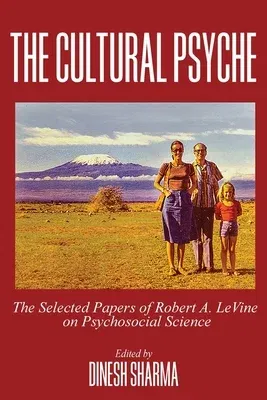As envisaged by Robert A. LeVine many years ago, the human development
indicators have improved in many societies as income, healthcare and
educational opportunities have been enlarged. Global transformations
have led to significant decline in extreme poverty and an increase in
working class and middle class families around the world in the emerging
economies throughout Africa and Asia. As the technological and global
influences continue to challenge the dominant narrative in academic
psychology, conflated with WEIRD data assumptions, interdisciplinary
research will continue to increase in value and scope, where LeVine's
classical approach in psychological anthropology, combined with
psychoanalysis, developmental psychology, demography, language or area
research and population studies, offers a path forward. The essays
collected here in addition to honoring LeVine's work, hold out the
promise of a real convergence between psychology and anthropology or the
development of a psychosocial science -- a confluence between positivism
and relativism, empiricism and ethnography, and social sciences and
human sciences. The scientific search for universal laws and the ever
expanding search for cultural meanings in the diverse communities around
the world must continue simultaneously and in conjunction with the
transnational or global challenges we face today.
Hybridity fostered by interdisciplinary researchers has stood the test
of time as the social sciences have gradually outgrown the monolithic
ways of looking at the world. The project of a psychosocial science
represented by the work of Robert A. LeVine at the intersection of
psychology, anthropology, demography, child development and
psychoanalysis maps out some of the challenges of a hybrid discipline.
Hybridity impacts not only the humanities and social sciences, but
physical sciences in genetics and genomics, or applied disciplines like
biotechnology and life sciences. Thus, it is important that we not lose
sight of LeVine's spirit of interdisciplinary research. Advocates for
universalism, the psychologists or behavioral scientists pursuing
universal laws of human nature, must collaborate with the growing number
of relativistic scientists - anthropologists, sociologists, or cultural
studies experts -- searching for local meanings in small-scale village
communities. There will be a confluence of social and human sciences, or
what C.P. Snow, the English literary critic called the 'two cultures' of
the scientific revolution - the sciences and humanities.


